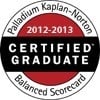Introduction
SEO has long been the cornerstone of digital marketing strategies, yet discussions about its relevance have intensified in the era of AI and generative engines. Contrary to claims of its demise, SEO is far from dead. Instead, the rise of AI-driven platforms and Generative Engine Optimization (GEO) creates a complementary opportunity for content creators and marketers.
SEO Is Not Dead
Despite evolving search landscapes, search engine optimization remains a critical component for digital visibility. Google still holds a market share of over 90% of all search traffic, which makes optimizing for traditional search engines an ongoing necessity. This section will explore why SEO continues to be a foundational practice.
Generative Engine Optimization (GEO) vs. SEO
Generative Engine Optimization (GEO) represents the idea of optimizing for AI-driven search platforms like ChatGPT, but it's not an either/or decision. In fact, the most effective strategies employ a hybrid approach: prioritize SEO while leveraging GEO.
Key Differences and Opportunities
- SEO: Focuses on ranking in search engines to gain traffic.
- GEO: Centers on visibility in generative engines where fewer results are displayed, creating unique engagement opportunities.
Table Comparison
| Aspect | SEO | GEO |
|---|---|---|
| Objective | Traffic, Conversions | Visibility, Engagement |
| Optimization | Keywords, On-page factors | Entities, Intent Matching |
| Content Strategy | Informational, Transactional | Reference-Based, Contextual |
The AI Opportunity: Why Showing Up Matters
Being featured in generative platforms like ChatGPT or Bing Chat is a golden opportunity due to the low competition. Instead of competing against millions of search results, you could be among the two or three results displayed.
Example
When users research a product via AI chatbots, there are typically only a handful of suggestions. This could be the difference between being the first option or being buried under traditional search results.
The Role of Entities in SEO and GEO
Both traditional SEO and GEO are increasingly reliant on entities — the people, places, and organizations that lend credibility to content. Google's algorithms and AI models use entities to contextualize and rank content accurately.
Strategies to Build Entity Authority
- Schema Markup: Use Person, Place, and Organization schemas to define content entities.
- Knowledge Panels: Claim and optimize Google Knowledge Panels.
- Entity Placement Analysis: Compare your entity strength against competitors.
- Press Releases & High DA Backlinks: Legitimize your brand in AI by securing high-authority mentions.
GEO’s Different Approach: Visibility, References, and Engagement
GEO’s focus diverges from traditional SEO goals.
The main priorities are:
- Visibility Over Rankings: Your content should be easily discoverable in AI contexts.
- References Not Traffic: Citing and linking to trusted entities.
- Engagement Not Conversion: Building meaningful interactions rather than just aiming for clicks.
Practical Example
Prompts used by generative AI engines often reflect user intent more accurately. By understanding and playing with these prompts from a consumer’s perspective, marketers can identify new content opportunities.
How to Prepare for an AI-Driven Future
The future of search will be more adaptive and contextual, focusing on user behavior and intent. Here are actionable steps to remain competitive:
- Embrace Schema Markup: Properly structure data for both search engines and generative models.
- Optimize for Entities: Develop rich content that includes mentions of people, places, and brands.
- Leverage Press Releases: Use news syndication to strengthen entity credibility.
- Analyze Competitor Entities: Use tools to benchmark and enhance your entity-based strategy.
Projected Growth of AI in Search (2024-2030)
The AI in search market is projected to grow exponentially between 2024 and 2030. With increasing investments from tech giants and startups alike, the market is expected to reach significant valuations. Analysts predict a compound annual growth rate (CAGR) of over 20% during this period, driven by the demand for smarter search solutions.

Conclusion
SEO remains a robust and necessary strategy, but it's essential to adapt and optimize for AI-driven generative engines as well. By understanding the nuances between SEO and GEO and focusing on entity-rich, intent-driven content, businesses can secure a strong foothold in both traditional search and emerging AI platforms.
Calculate Your ROI From SEO by clicking the image.



